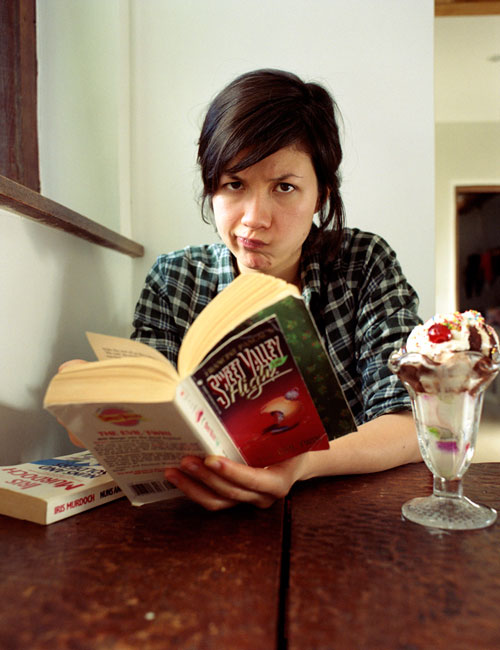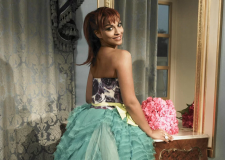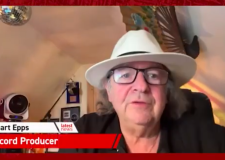Music: Emmy The Great
A woman who makes a Virtue out of the weird

While Emmy-Lee Moss, aka Emmy The Great, was writing her second album, Virtue, when her fiancé suddenly saw God and left her for the church. What began as a series of stories just after her engagement to an atheist, suddenly took on new meanings.
“This has been the craziest year of my life,” says Emmy. “We got engaged quite suddenly and then overnight he became a Christian. Disappeared and gone…”
Virtue often deals with people being trapped in strange situations, and the need for the characters to make their way through it. Using symbols borrowed form fairy tales and mythology, she then adds modern day icons such as industrial buildings and mushroom clouds. She calls this personal collection of myths that she fitted to her music, along with musician Euan Hinshelwood, as ‘digital medieval’. “I remember a lot of dreams,” says Emmy. “Even when I was six! I was dreaming a lot when I was making the record. My subconscious was coming into play – I wasn’t dealing with the break up of my engagement on a conscious level.
“I have a close connection with my internal world,” says Emmy. “My dreams often consist of ogres and witches – they are there so that I can deal with them, turn them into stories. I’m quite optimistic, happy-go-lucky sort of person, but it gets darker when I write!”
Emmy noticed that women only make it through the woods in myths if they keep their virtue. Both getting engaged and the subsequent split had the effect of her losing her direction – getting lost in the woods, as it were. And so she hid herself away at her parents’ house and went about putting the pieces back together again.
Virtue is a highly literate and poetic work, with the influences of musicians and writers such as Suzanne Vega, Margaret Attwood and Angela Carter buried within, as well and many myths, ancient and modern, informing it.
It all adds up to the never-ending search for identity and purpose: “I wanted to be a backing singer,” she says about the adoption of Emmy the Great as her stage name. “I wanted to have something to hand to people. ’Emmy’ is a name they called me at university, which I hated, and ‘The Great’ I added was because I hated ‘Emmy’ so much!”
Emmy The Great, Duke Of York’s Cinema, 3 October, £12.50





















